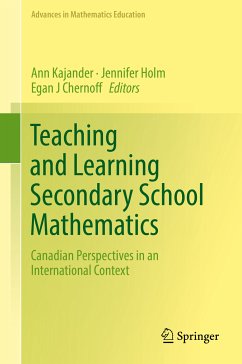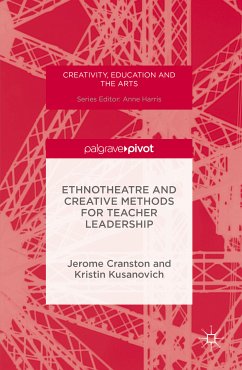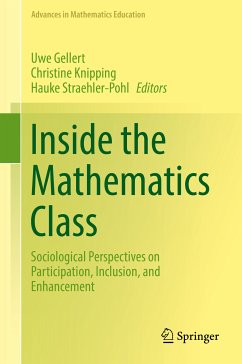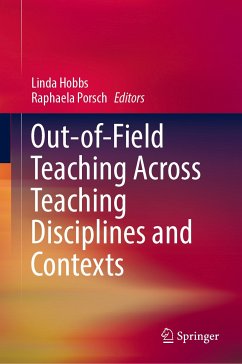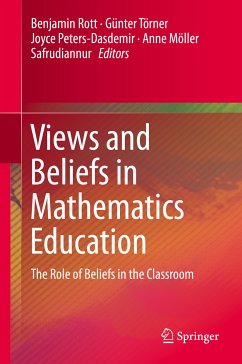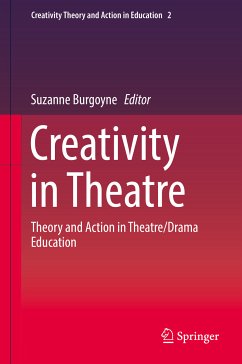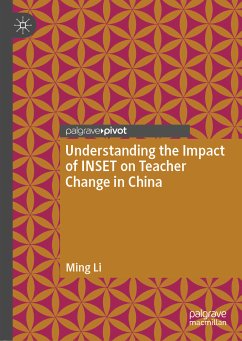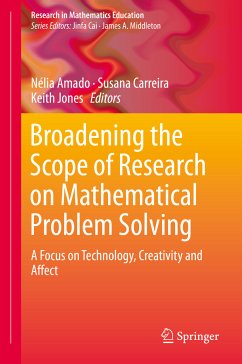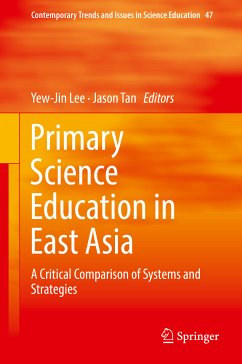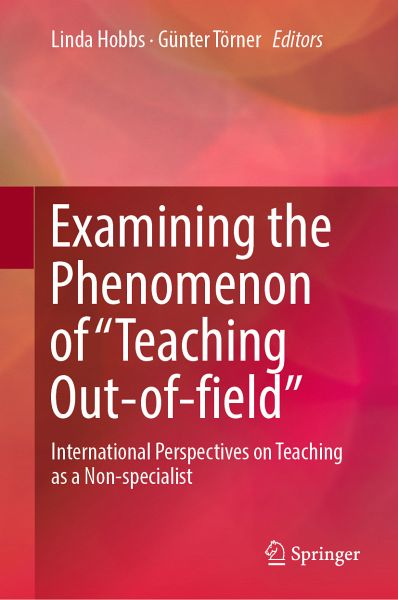
eBook, PDF
Examining the Phenomenon of "Teaching Out-of-field" (eBook, PDF)
International Perspectives on Teaching as a Non-specialist
Redaktion: Hobbs, Linda; Törner, Günter
Versandkostenfrei!
Sofort per Download lieferbar
Weitere Ausgaben:

PAYBACK Punkte
44 °P sammeln!





Examining the Phenomenon of "Teaching Out-of-field" (eBook, PDF)
Dieser Download kann aus rechtlichen Gründen nur mit Rechnungsadresse in A, B, BG, CY, CZ, D, DK, EW, E, FIN, F, GR, HR, H, IRL, I, LT, L, LR, M, NL, PL, P, R, S, SLO, SK ausgeliefert werden.
Linda Hobbs has taught science education at the tertiary level since 2002. Her PhD explored the effect of subject culture on the ways teachers conceptualize science and mathematics teaching; out-of-field teaching emerged as an issue requiring further research in Australia. Since then, Linda has undertaken various research projects relating to teachers' experiences of teaching out-of-field, the influence of context, support and teachers' personal resources on perceptions of feeling out-of-field, how teacher education programs prepare teachers for out-of-field teaching, and the policy climate relating to the issue. With funding for an Australian Research Council Discovery Project (2015-2017) Linda is part of a team (from Deakin, University of New England and University of Queensland) exploring the learning needs and school cultures supporting teachers new to mathematics and science teaching, including out-of-field teachers. Linda also heads an international group exploring this issue. Professor Törner studied mathematics and physics at the University of Giessen from 1968 to 1972. He received his PhD with the thesis "A classification of Hielmslev levels and Hielmslev rings" in 1975. Subsequently, he worked as a lecturer at the Technological University Darmstadt for four years. In 1977, he earned his postdoctoral lecturer qualification in mathematics. In 1978, he became a professor at the University of Paderborn. In the same year he was appointed as a full professor at the University of Duisburg-Essen, where he chaired the Department of Discrete Mathematics and Algebra. Prof. Törner has supervised many dissertations and continues to publish internationally. Additionally, he is pursuing numerous research projects with business partners as well as international partners from academia.
Produktdetails
- Verlag: Springer Nature Singapore
- Seitenzahl: 322
- Erscheinungstermin: 1. Januar 2019
- Englisch
- ISBN-13: 9789811333668
- Artikelnr.: 54856548
Für dieses Produkt wurde noch keine Bewertung abgegeben. Wir würden uns sehr freuen, wenn du die erste Bewertung schreibst!
Eine Bewertung schreiben
Eine Bewertung schreiben
Andere Kunden interessierten sich für


